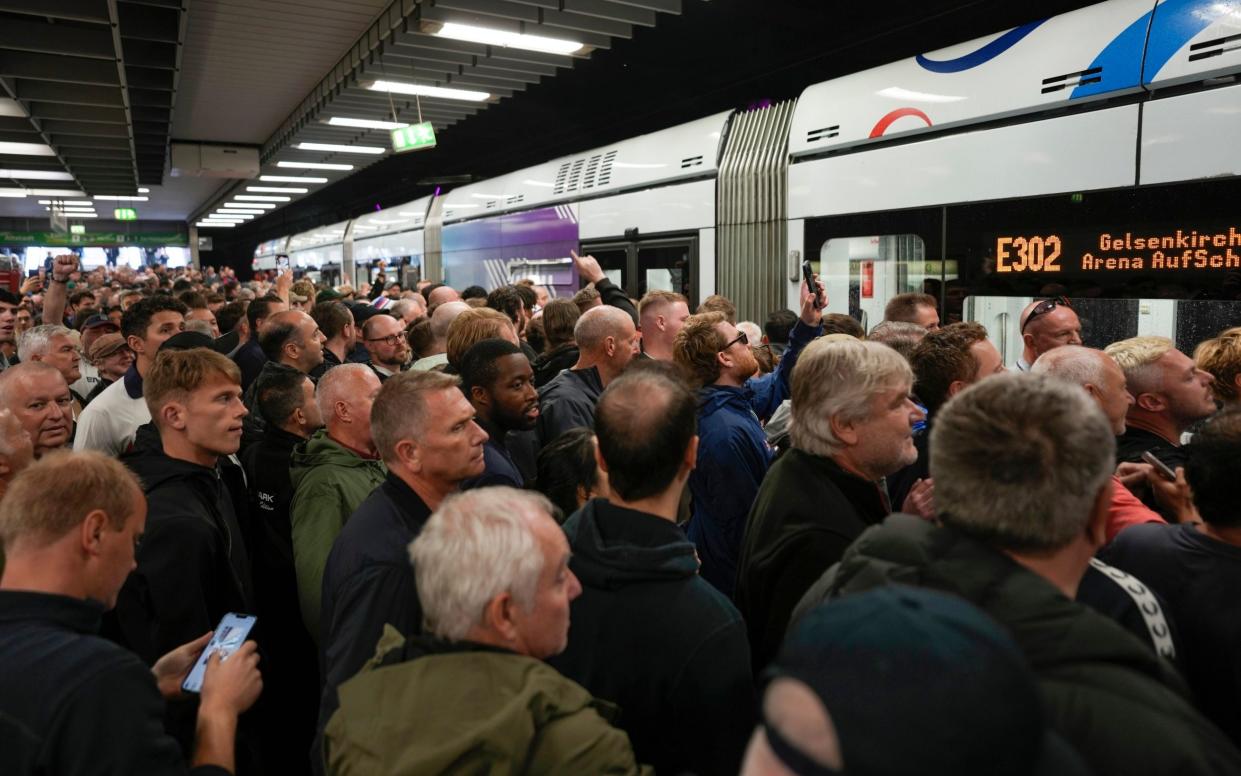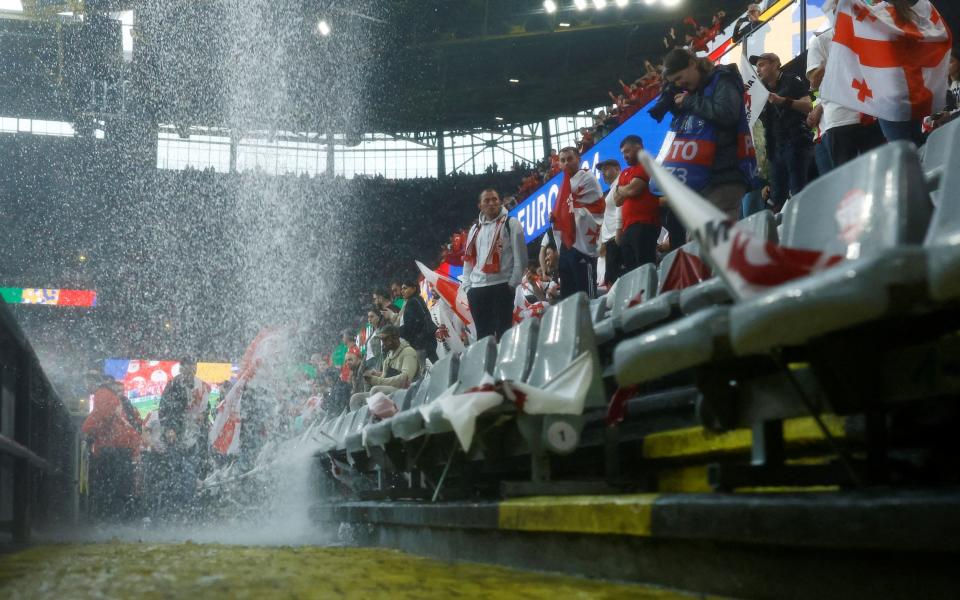How German incompetence turned the Euros into a logistical shambles

We are nearly a week into the Euros and while Germany pounded Scotland 5-1, no team has taken as much of a beating as the host nation’s reputation for efficiency and organisation. Matches have been dogged by reports of travel chaos, inadequate signage, unhelpful staff and faulty infrastructure. You’d expect this in Britain; not from our Teutonic cousins. Despite preconceptions to the contrary, it seems the Germans cannot make the trains run on time.
The chaos is all the more surprising to outsiders because Germany is a large, rich, football-loving country, which routinely has matches of this size. They should be used to dealing with thousands of fans.
Speak to those living there, however, and it is clear that these problems are nothing new; it is only the focus of an international audience, the thousands attending in person and the hundreds of millions watching on TV, that is making the outside world aware of them. England and Scotland fans are surprised to find themselves on a delayed train; locals merely roll their eyes.
Oliver Brown, The Telegraph’s chief sports writer, says: “The 2006 World Cup here in Germany passed into folklore, not just for Zinedine Zidane’s headbutt in the final but as a tournament where all accredited journalists could enjoy free first-class rail travel throughout the country. Fast-forward 18 years and the lustre has faded: Deutsche Bahn services so far have been both late and at a price point to challenge even Avanti West Coast. Little wonder many England fans, here under the grey skies of Frankfurt, are feeling right at home.”
It is a pity there is no word in German for revelling in the misery of others, or this would be the perfect time to deploy it.
Fan park confusion

For all the usual fears of hooliganism by the fans and hopelessness by the team, the big takeaway after England’s first match of the Euros, against Serbia in Gelsenkirchen, was something much more shocking: German incompetence. Fans and journalists reported scenes of chaos, variously described as “shambolic” and “by far the worst” experience they have ever had at an England game. The blame was pointed at a poorly located fan park.
Things were particularly difficult for fans in wheelchairs or with other mobility issues. There were overcrowded buses, a poorly located fan park, inadequate lighting, unhelpful signage, and treacherously slippery paths. Stragglers were still filing into the ground long after Jude Bellingham had headed in the game’s only goal. England matches have often left children in tears, but usually at the end of the game rather than the start.
Train chaos

Not that the final whistle was the end of the problems at England v Serbia. There were just as many delays getting out as there had been getting in. The Football Supporters’ Association (FSA) said it was “dismayed” by the chaos, adding that “to see fans stranded in Gelsenkirchen Hauptbahnhof three hours after the game has finished due to transport problems at a major tournament is quite simply ridiculous.” One furious fan said that it was high time transport was taken out of German hands and given over to UEFA. You know things are badly organised when UEFA seems like a better option.
Stranded on the autobahn

England Serbia was not the only affected fixture. For the opening fixture of the tournament on Friday, the trains running out of central Munich to Fröttmaning station, near Bayern Munich’s home ground, the Allianz Arena, were gummed up, causing long delays for thousands of hot German and Scottish fans. As the Glasgow airport bar had run out of lager earlier in the day, by the evening some of the fans no doubt needed the loo. The chaotic scenes on the trains and the trams led to overpriced taxis, with others opting to walk several miles rather than risk missing kick off. There was more crowding at the ground, where fans reported apologetic stewards explaining that it was their “first game.”
Fixing a hole where the rain gets in

British football fans are used to the sight of rain pouring into stadiums, most famously at Old Trafford. During Manchester United’s defeat to Arsenal in May, water poured through an old leak in the corner of the stadium. It was more surprising to see the same problem afflicting the stadium in Dortmund yesterday. Heavy rain in the build up to Turkey vs Georgia caused water to pour down to the pitch from a hole in the roof, sending fans scurrying for cover while a groundsman valiantly tried to sweep it away with a broom.
No surprise

The data from inside Germany suggest that the travel problems should not be a surprise. In recent years the railway services have been rapidly worsening. In 2023, punctuality rate for Deutsche Bahn fell below 60 per cent, down from 80 per cent in 2020. In 2022, more than a third of all long-distance trains were at least six minutes late, a ten-year low. In the three months to March 2024, the British punctuality rate was 68 per cent. Those who live there report a country blighted by gummy bureaucracy, with government services still paper-based, delays for council appointments and poor levels of customer service. Fax machines remain surprisingly common.
Perhaps we should see the leaky stadium as a metaphor. You only notice the hole in the roof when it rains; and you only notice creaking national infrastructure when you hold a major tournament. For comparison-loving Brits, the only disappointment is that while the trains might not be running on time, the German mannschaft is in ominously good form.


 Yahoo News
Yahoo News 
